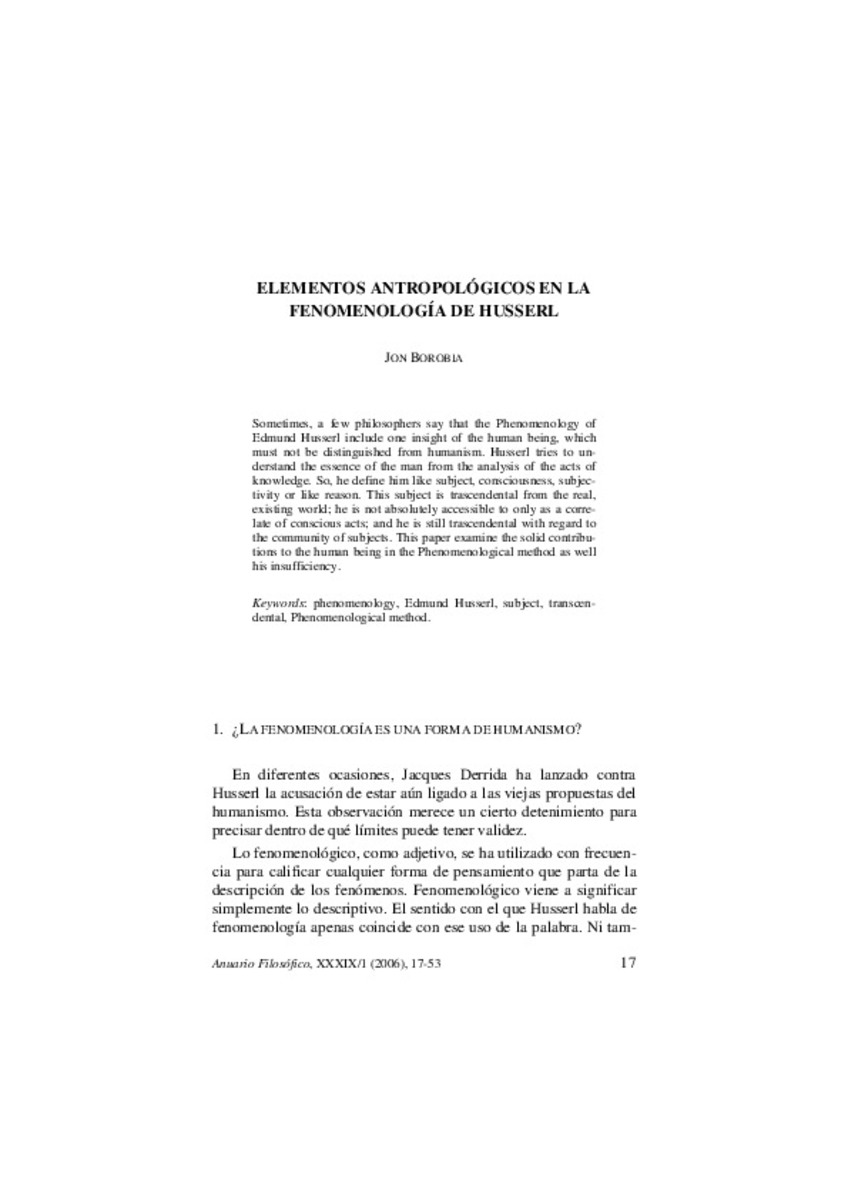Full metadata record
| DC Field | Value | Language |
|---|---|---|
| dc.creator | Borobia-Laka, J. (Jon) | |
| dc.date.accessioned | 2011-01-31T17:13:02Z | - |
| dc.date.available | 2011-01-31T17:13:02Z | - |
| dc.date.issued | 2006 | - |
| dc.identifier.citation | Anuario Filosófico, 2006 (39), 17-53 | es_ES |
| dc.identifier.issn | 0066-5215 | - |
| dc.identifier.uri | https://hdl.handle.net/10171/15935 | - |
| dc.description.abstract | Sometimes, a few philosophers say that the Phenomenology of Edmund Husserl include one insight of the human being, which must not be distinguished from humanism. Husserl tries to understand the essence of the man from the analysis of the acts of knowledge. So, he define him like subject, consciousness, subjectivity or like reason. This subject is trascendental from the real, existing world; he is not absolutely accessible to only as a correlate of conscious acts; and he is still trascendental with regard to the community of subjects. This paper examine the solid contributions to the human being in the Phenomenological method as well his insufficiency. | es_ES |
| dc.language.iso | spa | es_ES |
| dc.rights | info:eu-repo/semantics/openAccess | es_ES |
| dc.subject | Fenomenología | es_ES |
| dc.subject | Husserl, Edmund | es_ES |
| dc.subject | sujeto | es_ES |
| dc.subject | trascendental | es_ES |
| dc.subject | método fenomenológico | es_ES |
| dc.title | Elementos antropólogicos en la fenomenología de Husserl | es_ES |
| dc.type | info:eu-repo/semantics/article | es_ES |
| dc.identifier.doi | 10.15581/009.39.29312 | es_ES |
Files in This Item:
Statistics and impact
Items in Dadun are protected by copyright, with all rights reserved, unless otherwise indicated.






